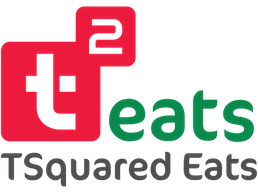Beyond the Debate: Why the Answer Isn’t Either/Or
In today’s nutrition landscape, few topics generate as much debate as plant-based vs. animal-based diets. On one side are advocates for vegan and vegetarian eating, emphasising plant diversity, fibre, and reduced environmental impact. On the other hand, proponents of animal-based diets argue for nutrient density, bioavailability, and ancestral eating patterns.
But for most people, especially busy professionals trying to optimise health, performance, and sustainability, the real question isn’t which side to choose. It’s how to structure a diet that works for their body, goals, and lifestyle.
At TSquared Eats, we avoid extremes. Our approach is rooted in balance, flexibility, and evidence, supporting clients who thrive on predominantly plant-based diets as well as those who prefer animal proteins, ensuring that either way, meals are nutrient-rich, satiating, and sustainable.
The Nutritional Advantages of Plant-Based Diets

Plant-based diets offer clear benefits. Research consistently shows that diets high in vegetables, fruits, whole grains, legumes, nuts, and seeds are associated with reduced risk of heart disease, diabetes, certain cancers, and improved longevity.
Plant foods are naturally rich in fibre, antioxidants, phytonutrients, and anti-inflammatory compounds, all of which support metabolic health, gut function, and immune resilience.
For busy professionals, a plant-forward approach also tends to promote satiety with fewer calories, thanks to the volume and fibre content of these foods, helping manage weight without strict calorie counting.
However, purely plant-based diets require careful planning to ensure adequate intake of certain key nutrients: vitamin B12, iron, zinc, calcium, omega-3 fatty acids, and high-quality protein. These nutrients are either less bioavailable or present in lower quantities in plant foods, making thoughtful meal design essential.
The Nutritional Advantages of Animal-Based Diets
Animal-based foods are rich in highly bioavailable nutrients: complete proteins, iron, zinc, vitamin B12, omega-3 fatty acids (especially from oily fish), and fat-soluble vitamins like A and D. For individuals with higher protein demands, athletes, those engaged in strength training, or individuals in recovery, animal proteins offer efficiency and convenience.
Animal foods also tend to promote satiety due to their protein density and favourable amino acid profile, which can help regulate appetite and maintain muscle mass during weight management programs.
Yet, a diet heavily skewed toward animal products without adequate plant diversity can miss out on fibre, antioxidants, and the gut health benefits of plant phytochemicals. It may also carry risks if dominated by processed meats or saturated fats from poor-quality sources.
What the Science Says: Flexibility Is Key

Current research increasingly supports dietary patterns over strict categories. Whether plant- or animal-based, health benefits depend on quality and balance. A poorly planned vegan diet heavy in ultra-processed foods and refined grains is no healthier than an animal-heavy diet loaded with processed meats and lacking fibre.
The Mediterranean diet, which is consistently linked with reduced chronic disease risk, exemplifies this flexible balance: predominantly plant-based, rich in vegetables, legumes, fruits, whole grains, nuts, and olive oil, but with moderate inclusion of fish, poultry, dairy, and occasional red meat.
This suggests the solution is not choosing one camp but tailoring a diet that emphasises quality whole foods, sufficient protein, micronutrient adequacy, and personal sustainability.
How to Choose What Works for You
There is no single ideal ratio of plant to animal foods that works for everyone. Individual factors matter:
-
Activity levels: Strength athletes and endurance performers may benefit from higher protein intake, which can be met through plant or animal sources with careful planning.
-
Digestive tolerance: Some individuals thrive on fibre-rich diets; others struggle with bloating or intolerances.
-
Ethical and environmental concerns: Values and priorities shape dietary preferences.
-
Practicality: Time, cooking ability, and access to fresh produce or premium animal proteins influence sustainability.
At TSquared Eats, our philosophy is to help clients build a personalised, adaptable framework that works for their lifestyle, whether fully plant-based, omnivorous, or flexitarian, ensuring that meals are always nutrient-dense, balanced, and supportive of their long-term goals.
The Common Ground: Quality First

Regardless of preference, certain principles apply to all diets aimed at sustainable health:
-
Prioritise whole foods over ultra-processed options.
-
Ensure sufficient protein intake to support muscle, metabolism, and satiety.
-
Embrace variety for micronutrient diversity.
-
Minimise added sugars, refined grains, and trans fats.
-
Respect portion control, even healthy foods in excess can derail progress.
By focusing on food quality rather than dietary labels, clients achieve not only better health outcomes but also greater enjoyment and adherence.
Final Thoughts
The question isn’t “plant-based or animal-based?” The real question is: “How can I eat in a way that nourishes my body, fits my lifestyle, supports my goals, and is sustainable over the long term?”
At TSquared, we help clients move beyond rigid diet ideologies and build a nutrition system that works in real life, whether that means carefully planned plant-based meals, premium animal proteins, or a flexible balance of both.
When food is thoughtfully structured, it ceases to be a source of confusion and becomes a powerful ally in building strength, performance, energy, and resilience every day.

